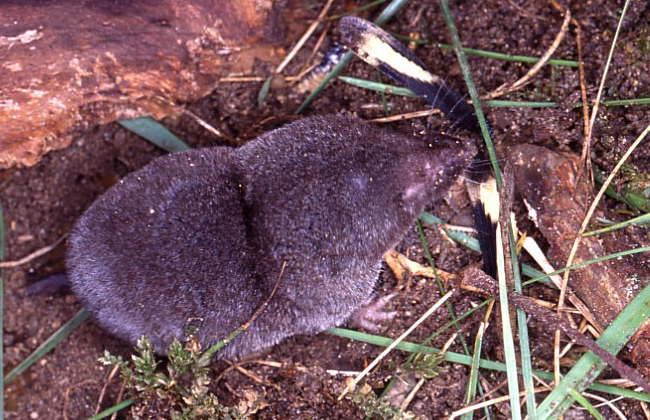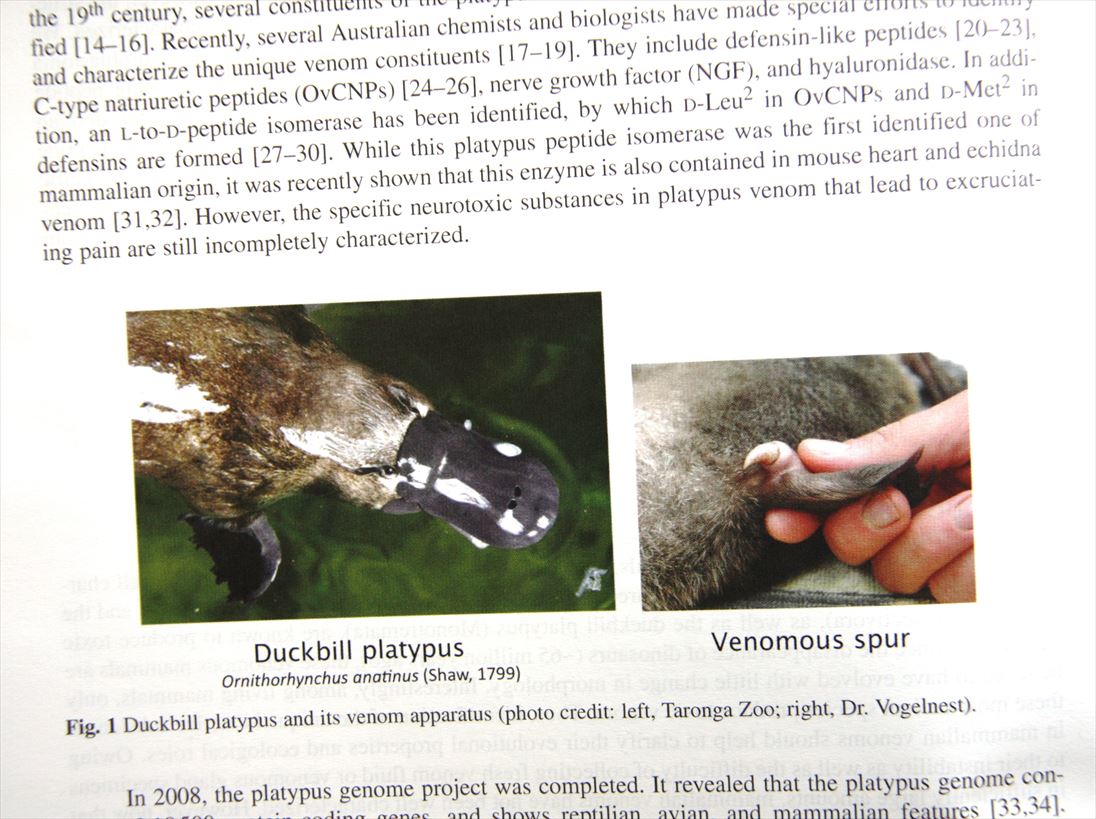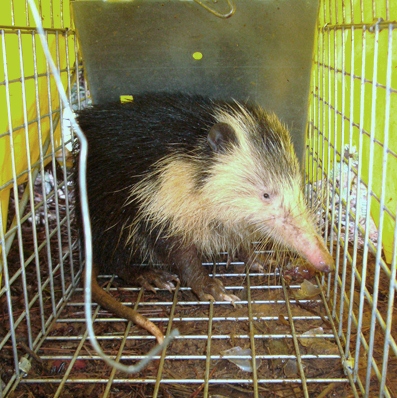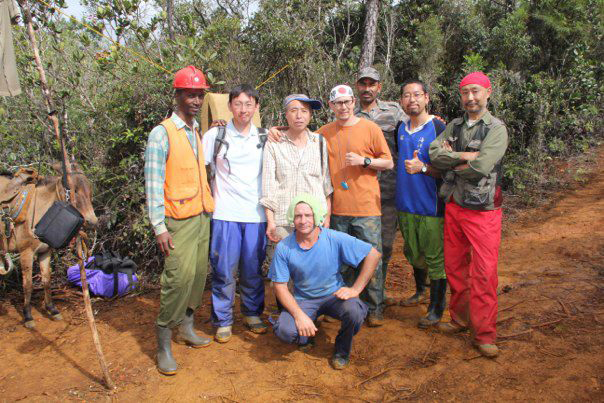TSUKUBA FUTURE
#004 A Chemist in Hunting of Rare Animals and Poisonous Substances
Associate Professor KITA Masaki, Faculty of Pure and Applied Sciences

Chemical biology is an ambitious research field that seeks to explicate the mechanisms at the foundations of life by observing how organic compounds affect organisms. Prof. Masaki Kita is a rising star in the field, and in March 2012 he received the Chemical Society of Japan Award for Young Chemists.
The stereotypical image of the chemist is a person who stays in a laboratory with flasks and beakers, performing experiments from morning to night, but Prof. Kita is different. He's an adventurous chemist who has traveled to Hokkaido, North America, Australia, Mexico, and even Cuba to hunt wild animals for himself.
Prof. Kita's specialty is elucidating the structure and functioning of naturally-derived, biologically active key compounds. This is pure organic chemistry. So far his research has included mushroom-derived substances that suppress fat accumulation, and anticancer and anti-inflammatory agents produced by marine life. But he has a hard time suppressing his naturalist nature, and his research extends to rare, venomous mammals.
The platypus and certain species of shrew are the only venomous mammals. The shrew is an extremely primitive mammal, primarily nocturnal and subsisting largely on worms and insects. More than 200 species are known, with only a few present in Japan. The saliva of certain species contains venom, in some cases strong enough that the shrew can paralyze and prey on worms as long as itself.
With cooperation from zoologists, Prof. Kita first obtained samples of the saliva of the long-clawed shrew in Hokkaido, then from that of the northern short-tailed shrew, found in North America. He was first in the world to elucidate the structure of the poison contained in mammalian venom.

Northern short-tailed shrew (length 7 cm) eating a grasshopper

Left: The strange, amphibious platypus, which lays eggs and nurses its young.
Right: The male's hind spur (from Pure Appl. Chem., pp. 1317-1328, vol. 84, June 2012)
He then proceeded to investigate the platypus, another primitive mammal belonging to the monotreme group. The platypus is a rare mammal that occurs only in certain parts of Australia, and the spur found on the male's hind limb secretes venom. With cooperation from Sydney's Taronga Zoo, Prof. Kita collected platypus venom, discovered and elucidated the composition of 11 varieties of small bioactive compounds called peptides and demonstrated their unique properties. The results of his research were covered by the New York Times.
Prof. Kita showed that shrew and platypus venoms contain an enzyme capable of breaking down protein and affecting nerve cells. Future research may also lead to the development of new drugs such as analgesics.

Captured Cuban solenodon (length 30 cm)

Japan/Cuba joint investigation team (Prof. Kita is second from left)
The solenodon, a relative of the shrew, is just as rare as the platypus, and is a kind of living fossil. The solenodon has only two species, the Cuban and the Haitian solenodons, and both have been designated as endangered. In March 2012, Prof. Kita teamed up with Japanese and Cuban researchers in zoology, ecology, and other fields, as well as local environmental ministry investigators, on a hunt for solenodons, and succeeded in collecting saliva from five of the seven specimens they captured (the captured solenodons also had transmitters attached before being released). He is now analyzing the venom constituents.
Preserving biodiversity also preserves the possibility for future discoveries of currently unknown, natural active compounds. The Cuban solenodon was once thought to be extinct, but was rediscovered in 2003. Prof. Kita's research will hopefully lead not only to the discovery of novel active compounds, but encourage activities to preserve the solenodon as well.
Article by Science Communicator at the Office of Public Relations


